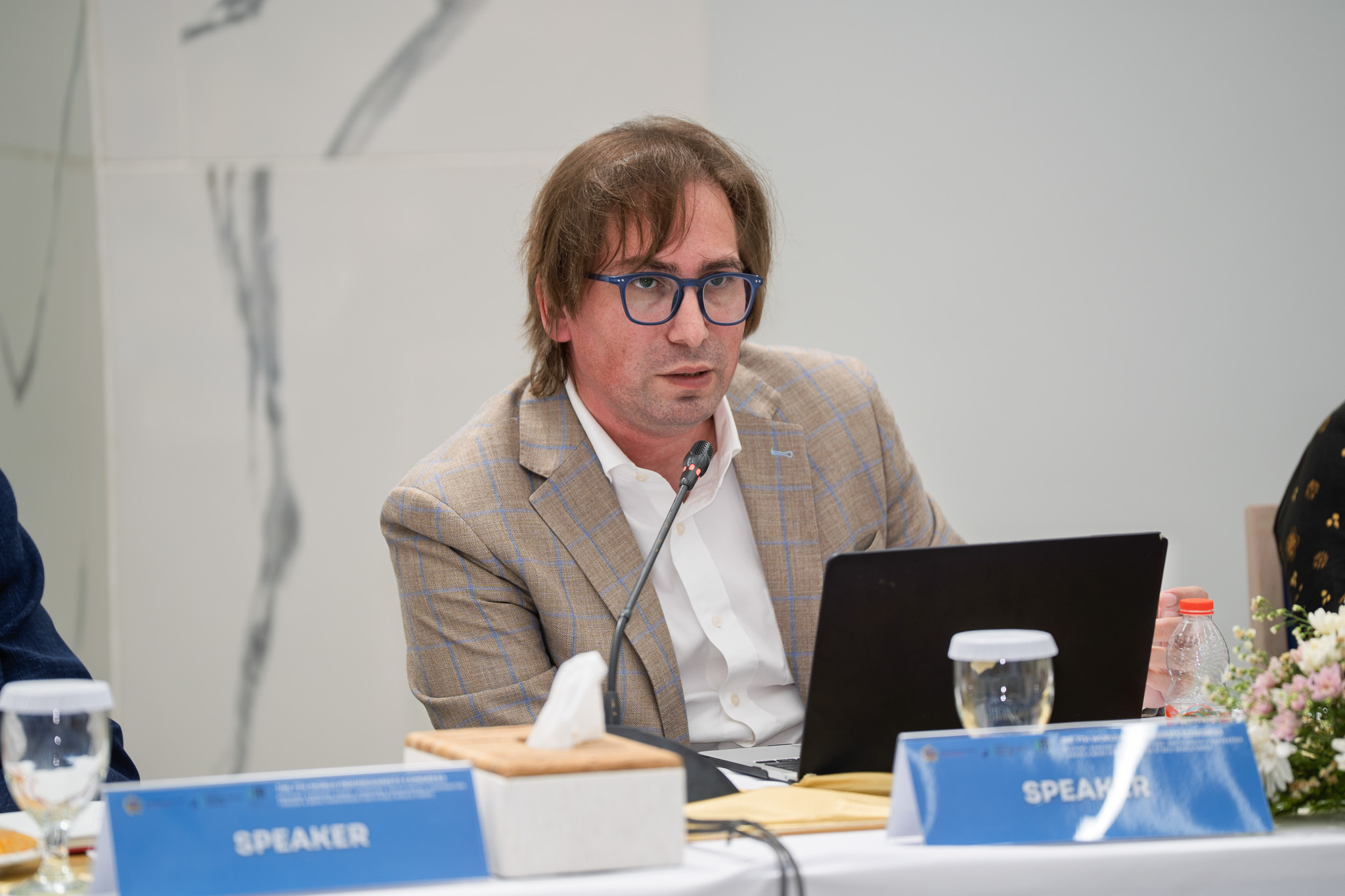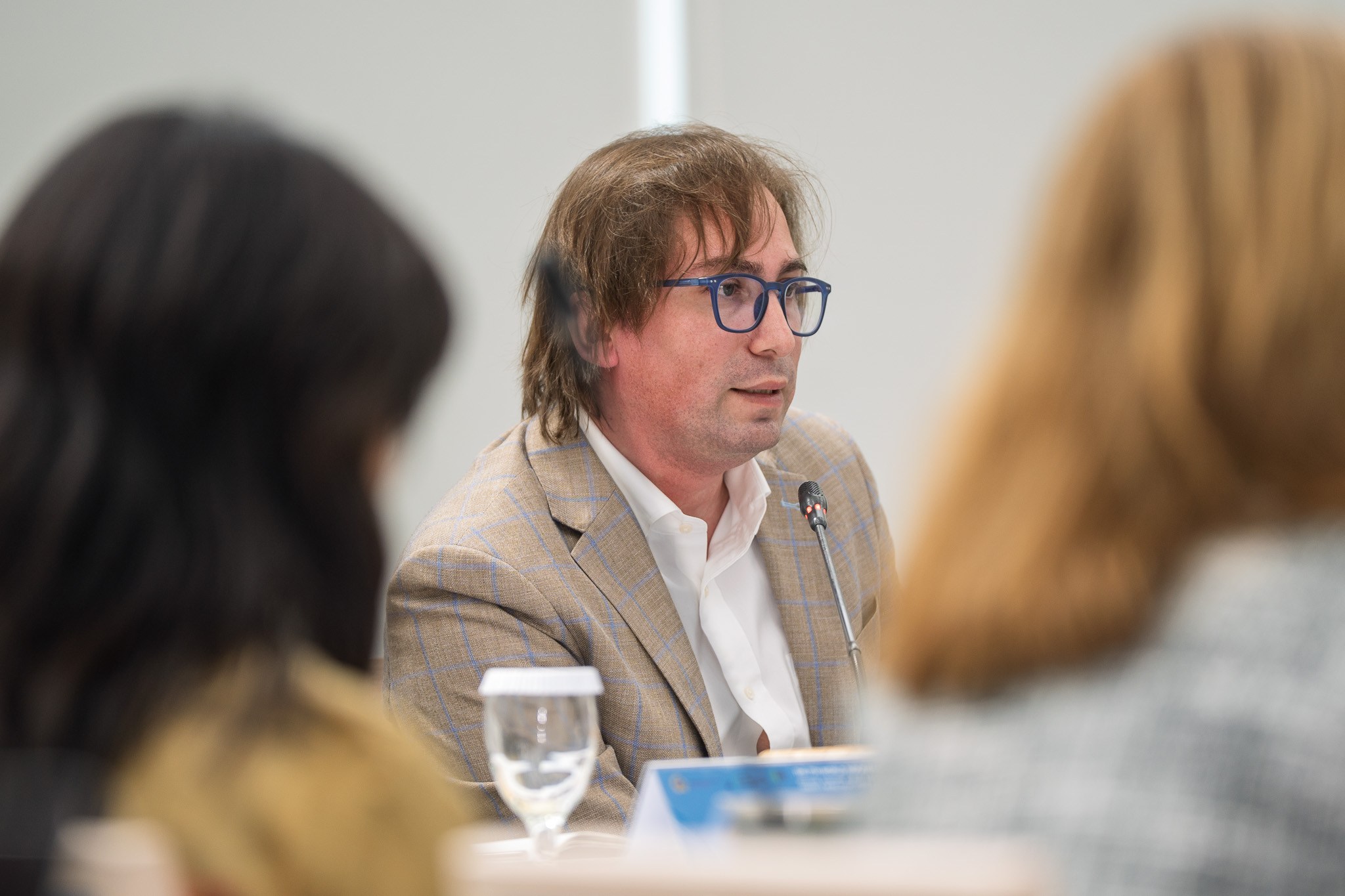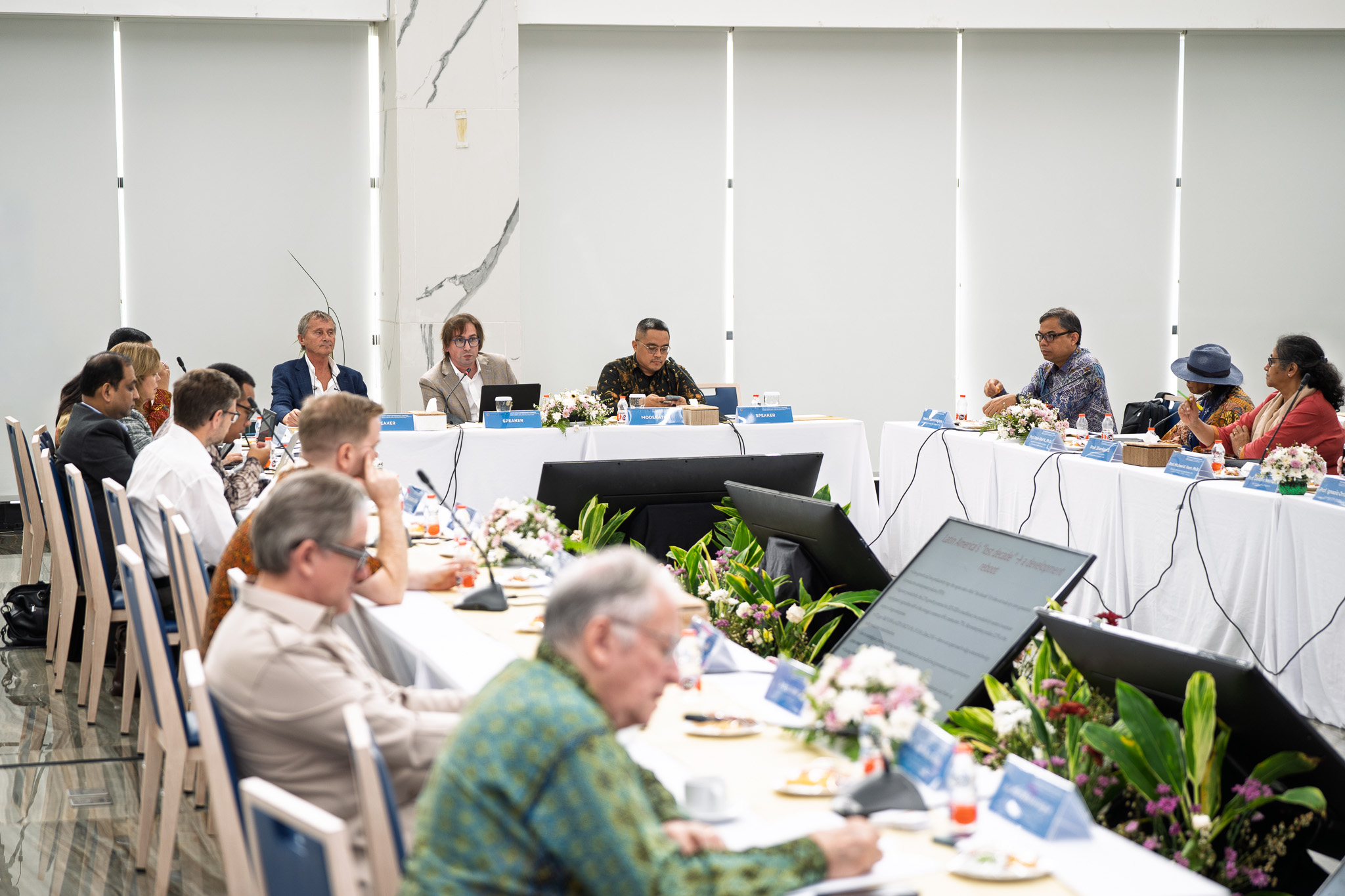More From News
UIII Builds a Bridge to Costa Rica
February 26, 2026
UIII Strengthens Its Academic Resources with Read Japan Project
February 25, 2026
November 21, 2025
By Dadi Darmadi | Photo: Achmad Jatnika

Depok, Indonesia — November 21, 2025 – At a time when digital transformation is reshaping global power dynamics, a leading Argentine scholar urged developing nations to assert greater agency in the governance of emerging technologies. Speaking at the 7th World Indonesianist Congress, held at Universitas Islam Internasional Indonesia (UIII), Ignacio Ortiz Vila of Universidad del CEMA delivered a pointed message: the Global South must not merely adapt to the digital age—it must help define it.
Ortiz Vila’s remarks came during a session titled “Economic Development, Climate Action, and the Blue Economy,” which also featured Prof. Stein Oluf Kristiansen of Norway’s University of Agder and Dr. Jae-Hoon Lee of Daejin University in South Korea. The panel explored how digital innovation intersects with sustainable development and geopolitical strategy.
“Seventy percent of new economic value in the coming decade will be generated through digital platform-based business models,” Ortiz Vila said. “Artificial intelligence, data governance, digital trade, and digital rights are no longer peripheral—they are central to the future of international relations.”
His presentation underscored a growing concern among scholars and policymakers: that the digital divide is not only technological but diplomatic. Ortiz Vila called for deeper South–South collaboration to build shared infrastructure, advocate for equitable representation in global forums, and promote ethical technology use tailored to local contexts.
The two-day congress, jointly organized by Indonesia’s Ministry of Foreign Affairs and UIII, convened 16 Indonesianists from 10 countries to reflect on Indonesia’s role in a shifting global landscape. The theme—“Reviving Bandung Spirit: Boosting South–South Cooperation Toward a More Prosperous and Stable World Order”—invoked the legacy of the 1955 Asia-Africa Conference, which helped galvanize solidarity among postcolonial nations.

Vice Minister of Foreign Affairs Arrmanatha Christiawan Nasir opened the congress with a stark assessment of the current geopolitical climate. “Multilateralism is in retreat, and protectionism often gives way to self-interest,” he said. “The Bandung Spirit continues to inspire the Global South, representing the voice of the marginalized.”
Ortiz Vila’s intervention echoed this sentiment, framing digital diplomacy as a strategic imperative for emerging economies. He supported the idea of “South–South–Triangular Cooperation,” which includes partnerships with Global North allies committed to inclusive development.
“Digital sovereignty is not a luxury—it is a necessity,” he said. “We must move from being passive recipients of global norms to active architects of a more just digital order.”
“The congress marks a significant milestone in UIII’s evolution as a center for Global South dialogue,” said Philips J. Vermonte, Dean of the Faculty of Social Sciences. A memorandum of commitment was signed between the Ministry of Foreign Affairs’ Foreign Policy Strategy Agency and UIII’s Faculty, laying the groundwork for collaborative research and academic initiatives. “This partnership is especially meaningful,” he added, “as Indonesia’s Minister of Foreign Affairs also serves on the university’s Board of Trustees.”
UIII Rector Prof. Jamhari Makruf described the university as a “diplomatic campus,” designed to connect Indonesia with the world through intellectual exchange. “The Bandung Spirit teaches us that solidarity and the courage to think critically are the foundations of the Global South’s future,” he said.
As the digital age accelerates, Ortiz Vila’s message resonated with urgency. In a world increasingly shaped by algorithms and data flows, the Global South faces a choice either to be governed by others’ rules or to help write its own. []

Universitas Islam Internasional Indonesia